The resilient hair
Years ago, minutes after a nightmare take-off during a storm on a flight I was taking to leave Copenhagen, we had just pierced through the clouds and settled at cruising altitude when the flight captain made an announcement that medical assistance was urgently required for a passenger who was feeling sick.
What a surprise it was to see a thin, lanky young man, with long dreadlocks (Bob Marley style), dressed in fancy clothes, calmly get to the poor, suffering man and put him back on track in a matter of minutes. He was a doctor.
When I had seen him at the boarding gate, I thought of him as a bit of a loafer. Quite a healthy lesson - never judge a person by external appearances.
The event in the plane suddenly came back to mind one day while I was sitting outside a bar and two guys, again with dreadlocks, passed by and I overheard a few sarcastic comments directed to them by some of the clients at the bar.
Perhaps, the one true thing these two events tell us is that our hair speaks for ourselves, to the extent that hair and hairstyles have marked man's history. From our hair-covered prehistoric ancestors, we have gone through the centuries to see the ancient Greeks and Romans who kept hair short and carefully shaved their faces, the matrons with their elaborate hairstyles, the Egyptians who liked to shave their heads, the wigs of the 17th and 18th centuries that often ended in the guillotine basket through the French revolution, the long hair of the hippies in the '70s, then followed by the perms and mullets of the '80s, etc.
Hair has also taken on religious meanings, such as the biblical Samson, or the Nazirites, who had to keep their hair long since birth, or the Indian Sikh and their beautiful coloured turbans.
Movies often set a fashion, as the Hollywood star Yul Brinner certainly did with his iconic shaved head. On the other hand, a shaved head can take a completely different meaning, for instance a negative one when it identifies skinheads, and even cause horror and dismay, like the shaved heads of prisoners in the second World War concentration camps and the annihilation inflicted on them. Again, a head with no hair can mean so many other things, like a bald head can make you think there is an underlying disease. In the same manner, when we see someone whose hair is a bit ruffled, we’d probably associate his untidy looks to a slightly weird artist, while it might just be that the guy is just not neat and tidy, or that he’s depressed and grooming is the last of his thoughts – there is no doubt that hair does tell who we are!
Major drama brought by the Covid pandemic lockdowns was, at least in Italy during the first pandemic wave, the closure of beauty salons, hairdressers and barber shops.
One might smile about how unneccesarily important it seems to be for some people to be able to go to the hairdresser, and to be forced to manage with some at-home remedies, with results that were not always satisfactory. Yet, it is a fact that the inability to have a professional to look after our hair has made many people rather miserable through the pandemic.
Though the media try to enhance the positive aspects of smart-working, we must admit that, when working from home, we all tend to turn a bit careless and stop looking after ourselves like when we have to go to work in the office. After all, if you know you can't go out, you don’t really care that much about your looks. In such a context, hair does become one of the first signs that we might be setting our mind to negative thoughts. The Covid-19 pandemic has increased the depression rate to worrying levels, as reported in the relevant literature. I don't want to exaggerate, yet I am pretty much convinced that when we stop keeping our hair neat and tidy that is a sign it's time to react.
Since the beginning of the pandemic, we have heard the word resilience basically every day, in many contexts, even not at all related. In simple terms, resilience is the ability to creatively react to an adverse situation. Well, I am convinced that resilience has an excellent ally in the bathroom, or in the "petineuse" table in the bedroom, if such a piece of furniture still exists. A “petineuse” is a dressing table, a piece of furniture which is no longer used or found in homes today, and which stored cosmetics and perfumes. As a child, I recall it as some enchanted and perfumed place, with drawers filled with hair brushes and creams, at my grandmother's place. I remember my aunts sitting at the table to work on their looks in the morning and, finally, stand up once finished, yet to give a last glance of satisfaction into the mirror as they left the table, well-groomed and ready for the day ahead.
Though I love antique furniture, I am not saying we should buy a petineuse dressing table, yet I believe that today it is important that everyone includes in their own "resilience set" the habit of taking better care of ourselves, besides having a fast internet connection and reliable computers. Setting the routine of taking care of your looks will change your attitude towards the day, the people you need to meet, it will give you a grin that people will be pleased to see, besides improving your looks.
So, my call to you today is to go back to visiting our hairdresser friends! It will do us good and we will also be supporting businesses that have been hit very hard by the pandemic.
Let's go back to our trusted hairdresser, or our barber friend! It is also a healthy moment of socialisation, some time "off duty" for yourself where you can put your worries aside and relax while chatting away to a professional hairstylist.
My final note in this call to show skin resilience is to always use quality products and to not skimp on personal care products and perfumes. In Italy, regardless of price, there is a broad selection of products and the quality is outstanding, and I am not overestimating it - we make products that are sold and highly appreciated all over the world.
Each product is made through strong investments in research, safety and efficacy testing and state-of-the-art manufacturing technology.
In conclusion, a resilient hair supports, all on its own, a sector that is an Italian national pride.
If we acknowledge this, I am sure we will feel greater indulgence when looking at the next young passer-by with wind in his long hair and a guitar over his shoulder, because he makes us catch a glimpse of the signs of a springtime we have all been longing for for far too much time.

Listen!
PODCAST
Listen to the article!
Voice: William Scott Agostini
TKS Publisher staff







